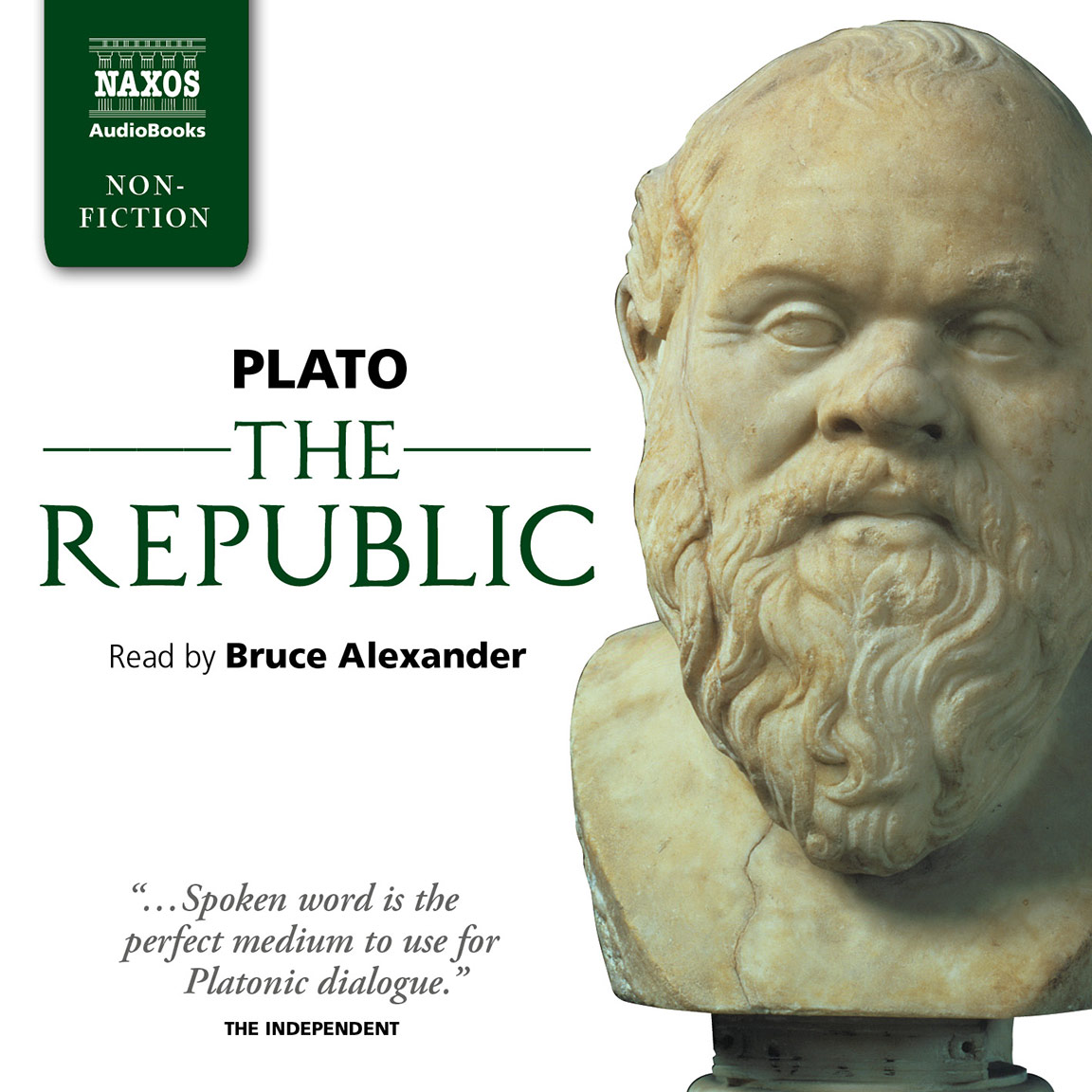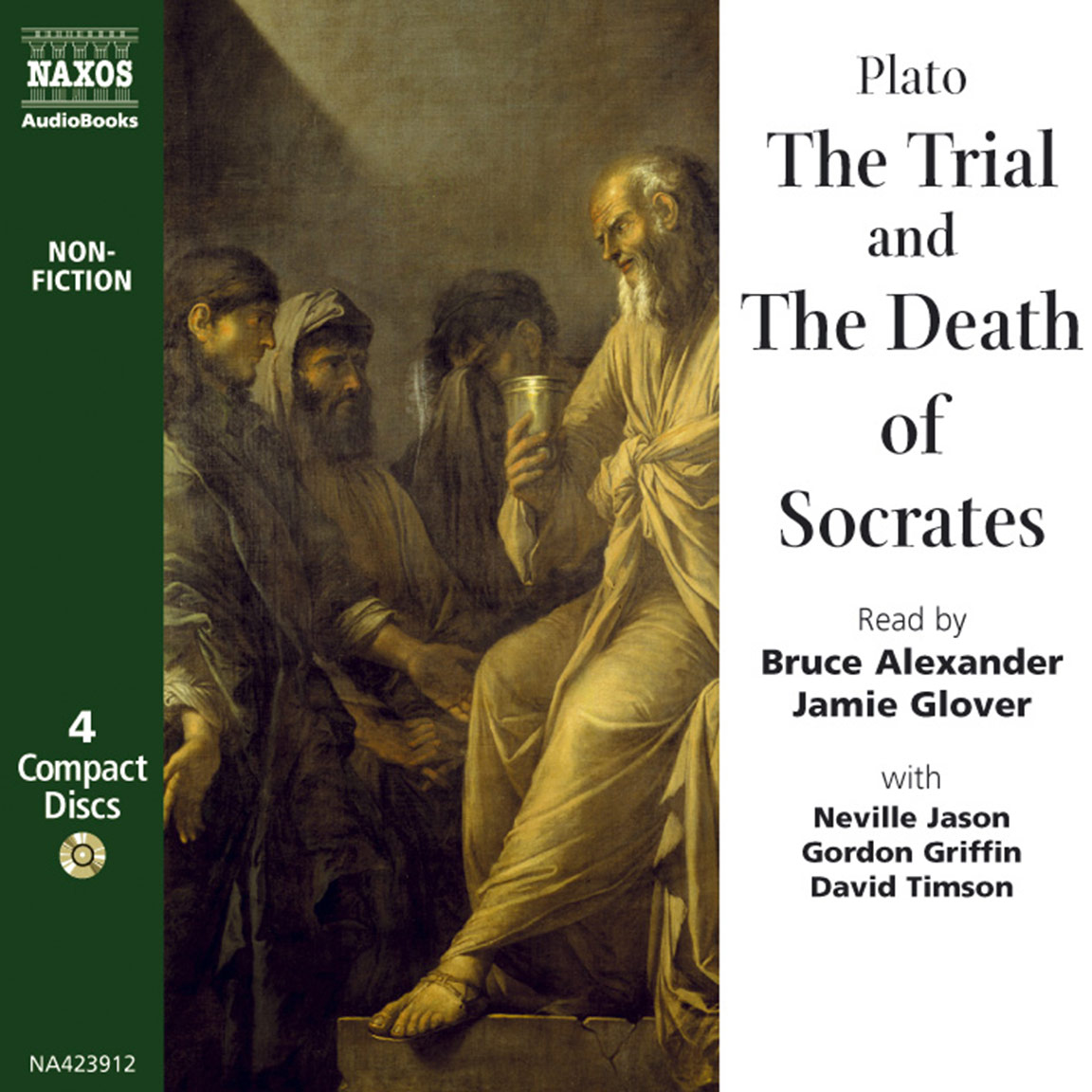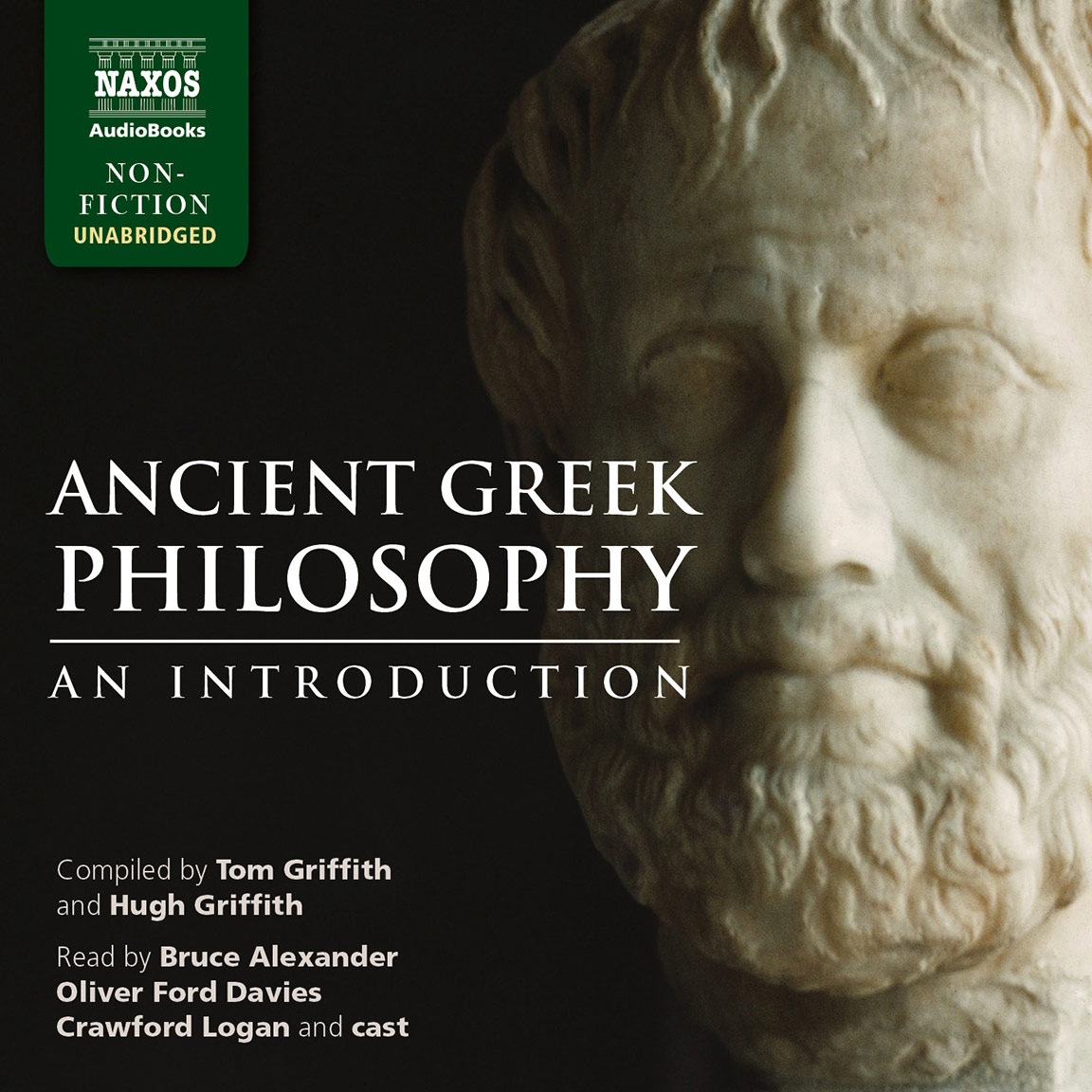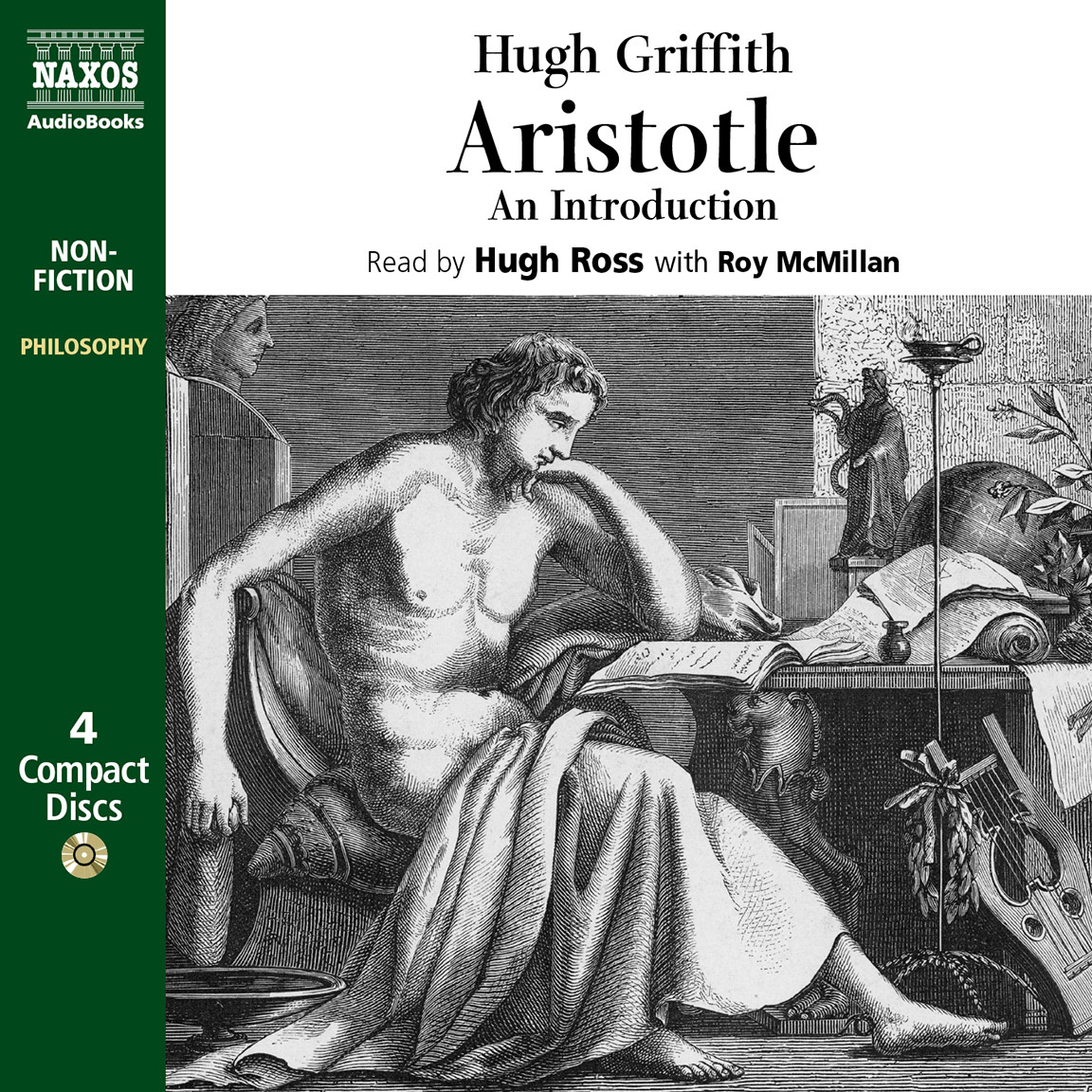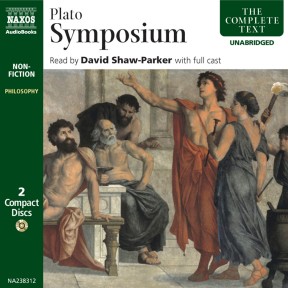
Audio Sample
Plato
Symposium
A new translation by Tom Griffith
Read by David Shaw-Parker, Tim Bentinck, Andrew Branch, Daniel Flynn, Gordon Griffin, Hayward B. Morse, Christopher Scott, Susan Sheridan & David Timson
unabridged
In Symposium, a group of Athenian aristocrats attend a party held by Agathon to celebrate his victory in the drama festival of the Dionysia. They talk about love until the drunken Alcibiades bursts in, and decides to talk about Socrates instead. Symposium gives a picture of the sparkling society that was Athens at the height of her empire. This classic discussion on love is presented in its ideal medium: a multi-voice recording.
-
2 CDs
Running Time: 2 h 31 m
More product details
ISBN: 978-962-634-383-8 Digital ISBN: 978-962-954-743-1 Cat. no.: NA238312 Download size: 37 MB Produced by: Garrick Hagon Directed by: Garrick Hagon Edited by: Wolfgang Dienst Translated by: Tom Griffith BISAC: PHI000000 Released: December 2005 -
Listen to this title at Audible.com↗Listen to this title at the Naxos Spoken Word Library↗
Due to copyright, this title is not currently available in your region.
You May Also Enjoy
Cast
- David Shaw-Parker
- Socrates
- Tim Bentinck
- Apollodorus/Alcibiades
- Andrew Branch
- Aristodemus
- Daniel Flynn
- Agathon
- Gordon Griffin
- Pausanias/Friend
- Hayward Morse
- Phaedrus
- Christopher Scott
- Eryximachus/Servant
- Susan Sheridan
- Diotima
- David Timson
- Aristophanes
- Daniel Flynn
- Presenter
Booklet Notes
The Greek word sumposion means a drinking party (a fact shamefully ignored by the organisers of modern symposia), and the party described in Plato’s Symposium is one supposedly given in the year 416 BC by the playwright Agathon to celebrate his victory in the dramatic festival of the Lenaea. He has already given one party, the previous evening; this second party is for a select group of friends, and host and guests alike are feeling a little frail. They decide to forego heavy drinking, and concentrate on conversation. The subject of their conversation is Eros, the god of sexual love.
Symposium was written around 384 BC, and many would regard it as his finest dialogue, from an artistic point of view, and the most enjoyable to read or listen to. There are many reasons for this, but I will focus on four: the keyhole glimpse it gives us of Athenian society; the role played in the dialogue by Socrates; the description of what has come to be known as Platonic love; and the characterisation of the speakers.
Athenian society
Symposium is a key text in any discussion of the Athenians and their attitude to male homosexuality. When Phaedrus, Pausanias and Agathon wax lyrical about Eros, what they have in mind is erotic love between men, or between a man and a boy; and then the byplay between Socrates, Alcibiades and Agathon about who sits next to whom – it all suggests, rather, that nobody can resist a good-looking young man. Do we conclude that the Athenians regarded heterosexual love as business, a family duty, and took pleasure only in homosexual love? Maybe. But if we do, then the plot of Aristophanes’ play Lysistrata makes no sense. In Lysistrata the women of Sparta and Athens bring the war to an end by refusing to have sex with their husbands while it continues.
Quite apart from this, Symposium gives us intriguing details of social life in Athens. What was a dinner party like? We tend to regard food and drink as complementary, but in Symposium it’s a question of eating first, and then drinking afterwards, and nobody suggests that this is an unusual thing to do. And after dinner? Clearly it is unusual to prefer conversation to the entertainment provided by a flute girl (for whom, to judge by vase paintings, playing the flute might be the least of her duties). And the flute girl reminds us that Athens (like all Greek city-states) was a society based on slavery, so it is interesting to note the courtesy with which Agathon treats the slaves serving the meal. ‘Regard us as your guests,’ he says, addressing them, not as equals, perhaps, but very nearly as friends.
Socrates in Symposium
The Socrates who appears in many Plato dialogues is something of an acquired taste. He claims to know nothing, yet clearly thinks he knows more than the people he is talking to. He is reluctant to offer views of his own, preferring at best to criticise, at worst to misrepresent, the views of others. In Symposium, the agreed format (that each guest will make an uninterrupted speech) both prohibits his preferred technique of question-and-answer (though he does try it at one point) and requires him to say something positive himself. On a personal level, he shows more human characteristics than usual. He has his usual passion for what is just and what is true. But we also see him, lost in thought, as he wanders into the porch of the wrong house, leaving his uninvited companion to arrive on his own. We hear how he resisted the sexual advances of Alcibiades, the best-looking young man in Athens. Yet he is no ascetic. He drinks with the rest of them, and at daybreak, when the last drinkers finally fall asleep, only Socrates remains awake.
Platonic love
Socrates is always reluctant to lay claim to knowledge of his own. But he will, he says, report something he once heard on the subject of love from a wise woman (Diotima). According to her, admiration for physical beauty is the first step on a ladder which can lead us from love of the beauty of one person to love of all physical beauty; from there to love of mental beauty, the realisation that beauty of the mind is finer than beauty of the body; from beauty of the mind to beauty in customs and institutions; and from institutions to knowledge and beauty in general – in other words, to philosophy; here the lover will gain in strength and stature until finally he catches sight of absolute beauty itself (what in the Republic Plato calls ‘the form of the good’). In the modern world Platonic love has been reduced simply to non-sexual love; for Plato, as Symposium shows us, there is much more to it than that.
Characters
Agathon’s guest list has a generous sprinkling of A-list celebrities. Apart from Socrates, there is Agathon himself, winning playwright in a competition in which Sophocles and Euripides must have been entrants – glamorous, good-looking, talented, though gently ridiculed by Socrates for his vacuous rhetorical style. Aristophanes, the leading comic playwright of his day – dry, ironic, facetious, as we might expect, and also a good friend of Socrates (as we might not expect, given his satirical portrayal of Socrates in The Clouds). Pausanias, Agathon’s lover (according to Aristophanes) – confident, successful, man of the world to his fingertips. Not much to say? Then say it with assurance. We have Eryximachus – the fussy, precise society doctor; Phaedrus – the naïve and enthusiastic devotee of Eros, and of rhetoric. And above all, Alcibiades – top of anybody’s A-list. Not strictly a guest, since he gate-crashes the party, but clearly a good friend of Agathon. Alcibiades is good- looking (irresistibly so, to anyone but Socrates), charismatic, darling of the Athenian mob, and potential coup leader. It is his arrival drunk, halfway through the proceedings, which destroys the praiseworthy aim of keeping the drinking moderate. His description of his attempt, as a boy, to seduce Socrates, is both entertaining and a confirmation that Diotima’s ladder is not a pipedream. It is possible, says Plato, to go beyond physical desire, because here is someone – Socrates – who has done just that.
THE SPEAKERS IN THE DIALOGUE
AGATHON, a writer of tragedies
SOCRATES, a truth-loving eccentric
PHAEDRUS, an idealist
PAUSANIAS, a realist – Agathon’s lover
ARISTOPHANES, a writer of comedies
ERYXIMACHUS, a doctor
ALCIBIADES, a politician and playboy
Notes by Tom Griffith
